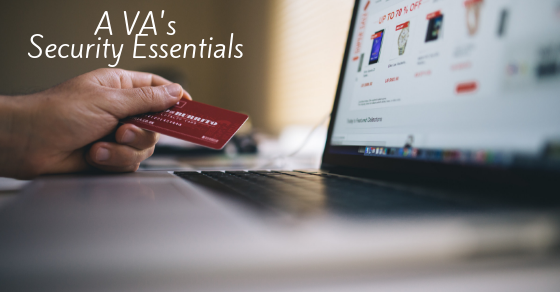6 Security Musts for Virtual Assistants

We’re all about going virtual with our work because there are numerous advantages to hiring a VA. Yet, many people hesitate to outsource because of one big fear: how to keep data secure. The last thing your VA wants is to compromise your passwords or important information. They want your trust and to make your workload more manageable.
Here are six key factors to keeping your digital workspace free from any security breaches.
- Make sure you’ve hired your VA through a reputable company that screens its employees, provides them with benefits and trains them for certain skills. The agency has already vetted its employees and can provide support in the onboarding process. This is vital both for you and your VA. You want to trust that your virtual employee is knowledgeable, accountable and invested.
- Provide clear instructions about how to use data and deliver a clear company stance. Have employees sign non-disclosure and confidentiality statements. A well-constructed protocol will ensure best protect your sensitive business information. For questions about this, speak to a legal consultant.
- Use password protection. Set up all your passwords in a reputable organizer that encrypts sensitive information, Our favorites are LastPass, 1Password, and Passpack. These sites allow you to organize passwords and share them in a safe manner. That way you never get locked out and can give permissions to your team members without relying on email. An extra note about passwords: Use strong ones, with a capital and lowercase letters, symbols and numbers!
- Make sure everyone has their own logins for all tools, including emails, websites, content management tools, sales software and digital workspace. This keeps everyone accountable to their work, and prevents the likelihood of losing all the data.
- Be a data gatekeeper. Categorize your data so that highly sensitive is data is reserved only for those who need it. Use permissions controls to protect data and allow it to reach those who need it. For example, only those who need credit card and financial documents should be able to see it.
- Download antivirus and computer protection software. You need to protect your computer and verify that all of your employees have the right tools to protect against malware and viruses. Use a paid antivirus tool and keep it updated. Same goes for all your computer software This includes having your backups saved locally, in a way that you can use them if you need this.
In the digital age, security is essential. Having standards and gates in place allows your business to run smoothly and without threat. When you keep files, passwords and data protected, you maintain integrity in your business and create an atmosphere of trust and efficiency.
 Submitted by Daniela
Submitted by Daniela
